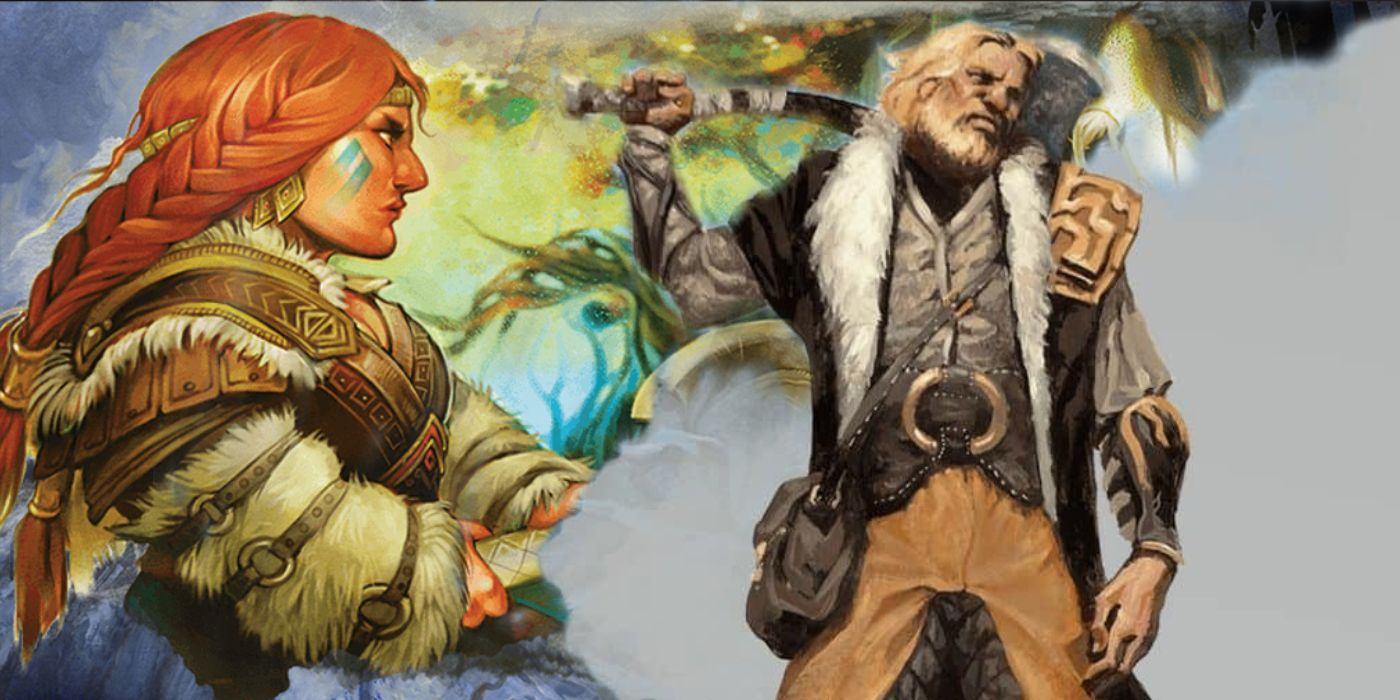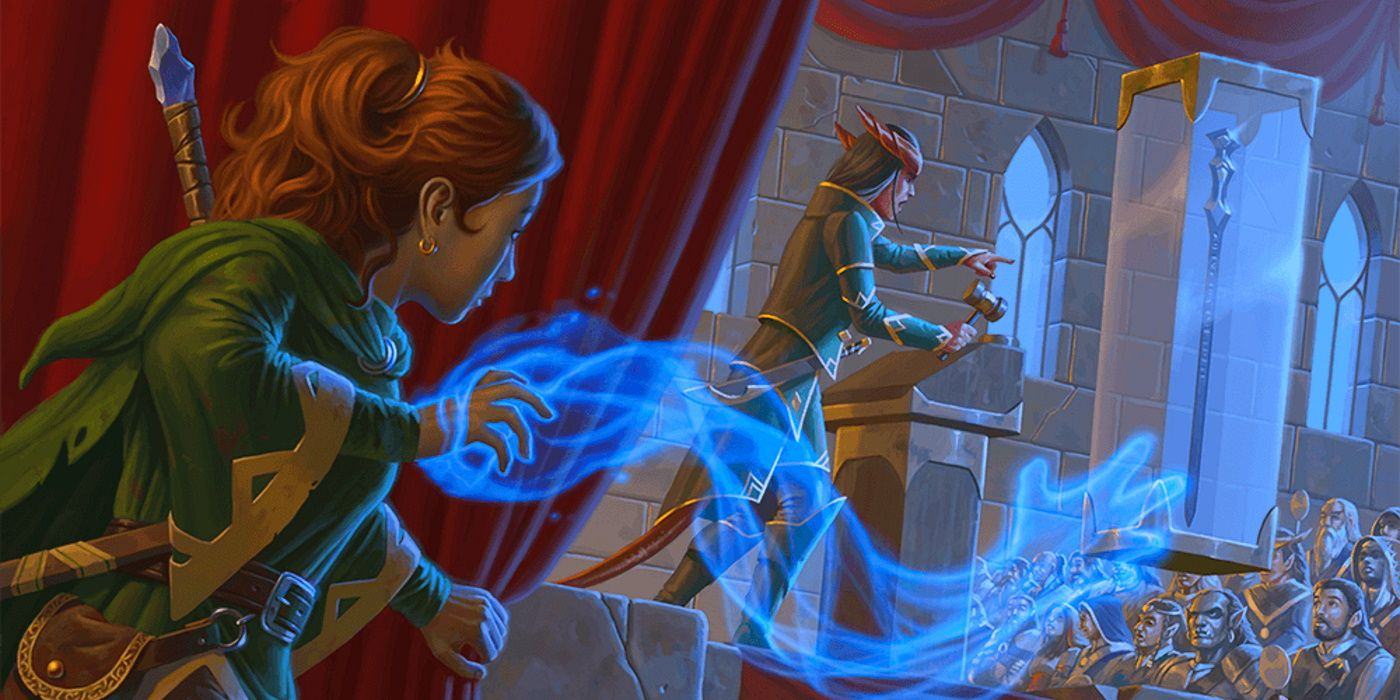recently, Dungeons and Dragons Developer Wizards of the Coast has released new demo content for its upcoming One D&D rule set, introducing updated versions of the Druid and Paladin classes to desktop players. New gameplay mechanics and updated abilities for the Druids (transformers, guardians of nature, and users of elemental magic) and Paladins (champions sworn to battle against the evil). evil and aid allies with protective magic), plus rules for clerics, guardians, rogues, and rangers hint at two major trends in One D&D class design — giving give each class more flexibility and give certain groups of classes common powers.
Demo rules for One D&D, a system designed to replace or add to the new 5e update and prepare for base content DND 5.5e, the classic 12 role occupations are divided into four categories: expert, mage, priest, and warrior. So far, testers have started providing feedback on expert classes (rogue, bard, and ranger) and priest classes (cleric, druid, and paladin). In addition to modifying the power of certain classes to ease the situation, all expert classes have a specialization feature that increases rewards for certain skills, and all priest classes are has holy magic effect call channel feature. Such a playthrough change could be an indication of what to expect from One D&D’s warrior and mage classes.
Contents
According to One D&D’s Expert Class Test file, the Warriors category will include the following classes: Warrior, Barbarian, and Monk.exist DND The fifth edition, each of these mechanically separate classes is designed to be masters of physical combat. The barbarians’ combat abilities revolve around their Berserk trait, which increases damage on melee attacks and reduces the damage of some enemy attacks. Modeled after martial arts masters in kung fu literature and kung fu films, monks strengthen their bodies with an inner energy called qi.Fighter, the oldest and simplest of its kind. DNDcan simply use any weapon, wear any armor, and perform a large number of attacks per turn.
Developers working on the One D&D beta that can participate will almost certainly try to provide a common signature feature for the warrior, barbarian, and monk classes, like the channel feature for the spirit class. Expert item or feature for the expert class. at 5e, common theme of these three martial arts DND Class is their resilience in melee and their ability to do multiple attacks per turn in combat. To better reflect this unique quality of the warrior class, One D&D The developers will likely pass the 5e warrior Action Surge functionality to the barbarians and monks, and let the warrior characters use their Surges to perform feats other than attacks. big.

Mage class in One D&D will represent each DND The 5.5e character classes use mysterious magic – spellbook mage, contract magus, and the chaotic font of magical power known as mage. Naturally speaking, each of these magic classes gains magical power in different ways and can cast different spells. However, mechanically, each of the three classes can cast spells themed on use and destruction (but cannot heal or revive). In addition, each of these classes DND 5e have a unique ability to enhance or change the spells they use (mage summons, mage spells, etc.).
To reinforce the theme of the mage class as a fantasy hero who seeks and masters the secrets of magic, One D&D will likely try to update wizards, shamans, and shamans. DND Subclass to make them even better by sharing signature functionality, allowing them to modify the spells they choose to use. For example, 5e Warlock’s Super Magic feature could be reworked into a theme compatible feature for Wizards and Wizards (although this may affect Warlock’s advantage of having fewer spells). spells than Wizards but have more control over what those spells do). Additionally, One D&D can create a new mechanic, themed around the mage class, to create new complex spells of their own.
D&D fighter class may have additional non-combat features

The three pillars of role-playing, as described in the rule book Dungeons and Dragons 5e, is combat, exploration and social interaction. Some of the best character classes of the contemporary era DND There are traits or spells that make them stand out in classic dungeon crawl or battle situations (by attacking enemies, healing or assisting allies, etc.). DNDHowever, spells or non-combat powers that are useful in social situations are often lacking. At a minimum, they may also have low Prestige and Intelligence scores, and not master important social skills such as persuasion, deception, insight or intimidation, coercion. DND Players as warriors can interact with NPCs on a purely narrative level.
Hold DND Character classes like fighters (defined by their ability to master weapons, armor, and attacks) are mechanically useless in social situations, D&D can help. DND Players get into the role by adding the functionality of more non-combat apps to the Warrior class. Ideally, any social interaction these classes gain would be consistent with their fantasy hero archetype (rather than crudely mimicking the bard class’s charm abilities). while fighters can get themed features to lead or command NPCs, similar to DND lord class 4e.
A D&D mage class can have more ways to use intelligence

In the basic SRD rules Dungeons and Dragons 5e, the wizard class is the only one that uses intelligence as its main ability. DND Grade 5e or subclasses use their Intelligence or Aura scores to perform magical attacks or save throws. So, DND 5e The player wants to play as an intelligent character, not a wizard, and has very few class options to choose from (technic class, Eldritch Knight warrior subclass, mysterious trickster subclass, or subclass). Mastermind scam, etc). For this reason, D&D may modify one or more majors Dungeons and Dragons classes to take more advantage of the Intelligence attribute — for example, by modifying the rules for the Mage class to allow the player to use Intelligence or Prestige to cast spells.
Source: Dungeons & Dragons/YouTube
